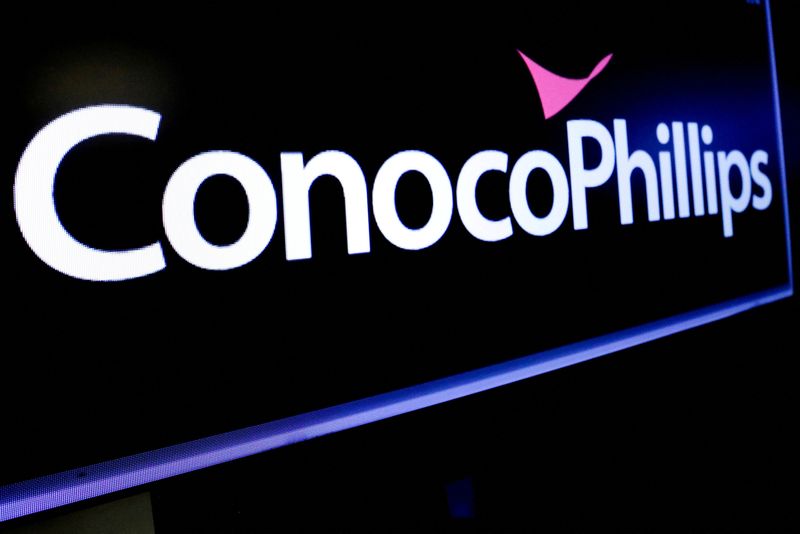HOUSTON (Reuters) – U.S. oil producer ConocoPhillips on Thursday reported a first-quarter profit that jumped five-fold and exceeded Wall Street estimates on higher energy prices and volumes.
Conoco pledged to bump up shareholder returns by 25% to $10 billion this year but gave a weaker-than-expected outlook for full-year production while raising project spending.
Still, its year-over-year profit gain outshone that of rivals Exxon Mobil Corp, BP Plc and TotalEnergies thanks to the absence of Russia writedowns and a primary focus on crude and gas production instead of fuels or renewable energy sources.
“We see demand continuing to grow over the next couple of years,” Chief Executive Ryan Lance told analysts, adding oil prices are “going to be probably above $90 a barrel” for the year.
Major oil producers in recent years have faced investor pressures to shift from fossil fuels and cut carbon emissions, and more recently to pump more oil to reduce fuel prices for consumers.
Shares were down 0.5% at $103.36 on Thursday afternoon with analysts raising concerns about Conoco’s 8% increase in the year’s capital spending budget.
Results “will be viewed as fairly neutral,” RBC Capital Markets analysts Scott Hanold and Davis Petros said in a note.
The Houston-based company’s adjusted earnings leapt to $4.29 billion, or $3.27 per share in the first quarter, from $902 million, or 69 cents per share a year earlier, beating Wall Street estimates of $3.03 per share, according to Refinitiv IBES data.
Its oil and gas fetched $76.99 per barrel, 70% higher than in the first quarter of 2021, reflecting crude’s jump above $100 per barrel this year on rising demand and supply worries over Russia’s invasion of Ukraine.
Output rose about 15% in the quarter to 1.75 million bpd of oil and gas from a year earlier on a large acquisition of Shell Plc’s shale holdings. But excluding Shell’s assets, production fell in the quarter.
The company also expects a sequential decrease in second- quarter output, to between 1.67 million-1.73 million bpd.
Conoco raised its capital spending budget to $7.8 billion from previous guidance of $7.2 billion. Rising cash flow will help accelerate debt reduction, it said.
While the company has committed to making its operations generate net zero carbon emissions by 2050, it has rejected broader, Scope 3 targets, in which emissions from use of its fuels are counted.
“Should you hold a company like ConocoPhillips responsible for a consumer’s decision to buy a pickup truck versus a Toyota Prius?” Lance asked. “The problematic piece has always been the Scope 3 because of the double counting.”
(Reporting by Sabrina Valle in Houston and Rithika Krishna and Arunima Kumar in Bengaluru; Editing by Barbara Lewis, Bernadette Baum and Matthew Lewis)























